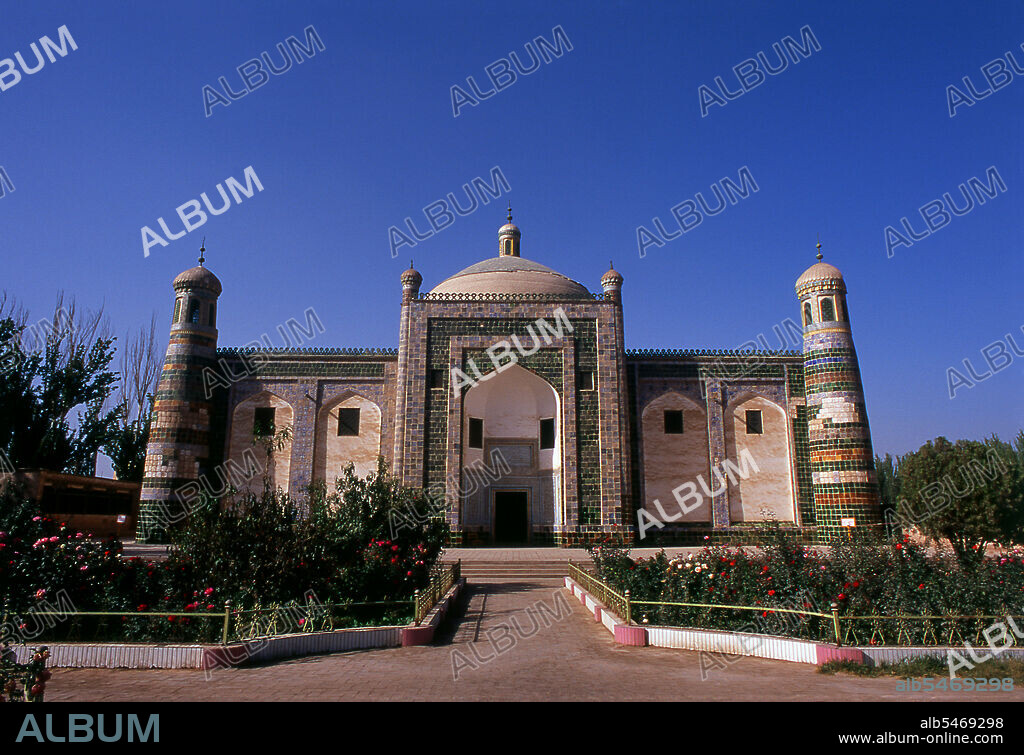alb5469298
China: The tomb of Abakh Khoja,17th century Sufi mystic, Kashgar, Xinjiang

|
Zu einem anderen Lightbox hinzufügen |
|
Zu einem anderen Lightbox hinzufügen |



Haben Sie bereits ein Konto? Anmelden
Sie haben kein Konto? Registrieren
Dieses Bild kaufen.
Nutzung auswählen:

Titel:
China: The tomb of Abakh Khoja,17th century Sufi mystic, Kashgar, Xinjiang
Untertitel:
Siehe automatische Übersetzung
Abakh Khoja (Apaq Xoja, or more properly Afaq Khwaja (? - 1693/94) was a religious and political leader in Kashgaria (in modern-day southern Xinjiang). He was also known as Khwaja Hidayat Allah (Hidayetullah Khoja). He was a great-grandson of the famous Naqshbandi Sufi teacher, Ahmad Kasani (1461–1542) and was revered as a Sufi teacher in his own right. Abakh Khoja seized power from the Chagatay dynasty of Yarkand by inviting Dzungar invaders through the secret diplomacy of the Dalai Lama. Abakh Khoja was a powerful ruler, controlling East Turkistan including Khotan, Yarkand, Korla, Kucha and Aksu as well as Kashgar. Abakh Khoja's mausoleum is considered the holiest Muslim site in Xinjiang. It is located in Haohan Village, a northeastern suburb some 5 km from the city centre of Kashgar. First built c.1640, initially as Muhammad Yusuf tomb, the beautiful tiled mausoleum contains the tombs of five generations of the Afaqi family, providing resting places for its 72 members, both men and women.
Bildnachweis:
Album / Pictures From History/Universal Images Group
Freigaben (Releases):
Model: Nein - Eigentum: Nein
Rechtefragen?
Rechtefragen?
Bildgröße:
4986 x 3417 px | 48.7 MB
Druckgröße:
42.2 x 28.9 cm | 16.6 x 11.4 in (300 dpi)
Schlüsselwörter:
ARCHITEKTUR • ASIEN • ASIEN, KONTINENT • CHINESIN • CHINESISCH • GESCHICHTE • ISLAM • ISLAMISCH • KONTINENT, ASIEN • MOHAMMEDANERIN • MOSLEMIN • MUSLIMIN • RELIGION • ZEITGESCHICHTE
 Pinterest
Pinterest Twitter
Twitter Facebook
Facebook Link kopieren
Link kopieren Email
Email
